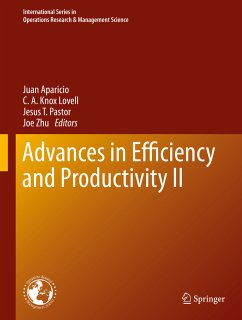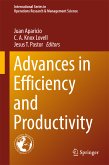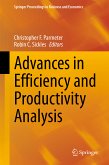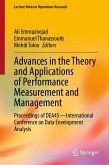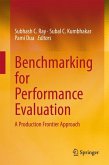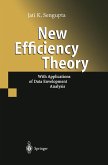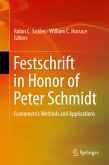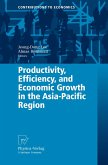This book surveys the state-of-the-art in efficiency and productivity analysis, examining advances in the analytical foundations and empirical applications. The analytical techniques developed in this book for efficiency provide alternative ways of defining optimum outcome sets, typically as a (technical) production frontier or as an (economic) cost, revenue or profit frontier, and alternative ways of measuring efficiency relative to an appropriate frontier. Simultaneously, the analytical techniques developed for efficiency analysis extend directly to productivity analysis, thereby providing alternative methods for estimating productivity levels, and productivity change through time or productivity variation across producers.
This book includes chapters using data envelopment analysis (DEA) or stochastic frontier analysis (SFA) as quantitative techniques capable of measuring efficiency and productivity. Across the book's 15 chapters, it broadly extends into popular application areas including agriculture, banking and finance, and municipal performance, and relatively new application areas including corporate social responsibility, the value of intangible assets, land consolidation, and the measurement of economic well-being. The chapters also cover topics such as permutation tests for production frontier shifts, new indices of total factor productivity, and also randomized controlled trials and production frontiers.
Dieser Download kann aus rechtlichen Gründen nur mit Rechnungsadresse in A, B, BG, CY, CZ, D, DK, EW, E, FIN, F, GR, HR, H, IRL, I, LT, L, LR, M, NL, PL, P, R, S, SLO, SK ausgeliefert werden.

